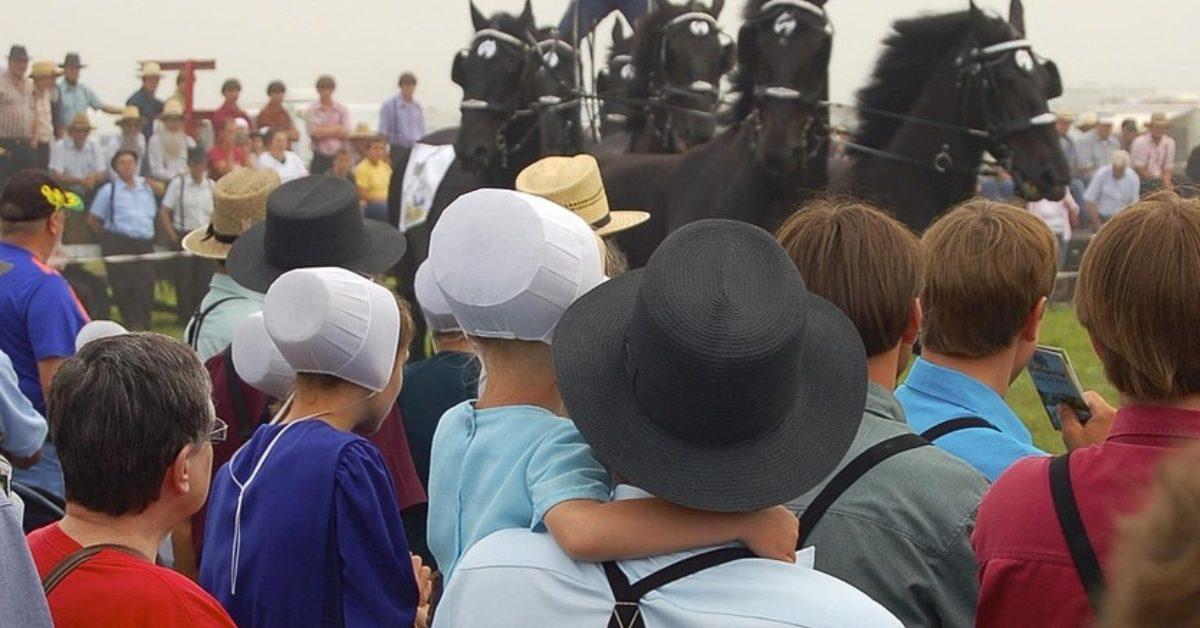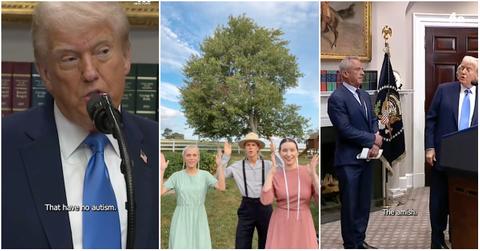Is Donald Trump Right? Do the Amish Really Have No Autism?
"They have no autism.Does that tell you something?"
Published Sept. 23 2025, 1:52 p.m. ET
It’s widely known that Amish communities across the country live very differently from the average American. They stick to simple lifestyles, often getting much of their food from their own farms, and avoid many modern conveniences, including vaccines. Because of this, some people have suggested they might be healthier than the average American.
In fact, former President Donald Trump, along with Robert F. Kennedy Jr., even suggested that the Amish are one group that virtually has no autism.
During a Sept. 22, 2025, speech, Trump said, “I think I could say that there are certain groups of people that don’t take vaccines and don’t take any pills that have no autism. They have no autism. Does that tell you something?”
He then turned to RFK Jr. and asked, “Is that a correct statement, by the way?” RFK Jr. agreed that some studies suggest this could be the case for groups like the Amish. But is that actually true?
Do Amish people have autism?

Amish children can be diagnosed with autism, and some indeed are, despite the fact that some Amish communities have lower immunization rates, according to an article published by the American Academy of Pediatrics.
They aren’t immune to the condition, though the rates do appear to be lower in communities that follow this lifestyle. But there are several factors that might explain why.
First, let’s address the misconception that the Amish don’t have autism at all. A 2008 study spanning 13 months looked at 1,899 Amish children between the ages of three and 21 in two dominant Amish counties, Holmes County, Ohio, and Elkhart-Lagrange County, Ind.
The study found that of the 1,899 children, 25 children screened positive for autism. That alone debunks the notion that the Amish don’t have autism. While this number is lower compared to many larger studies, it’s important to keep in mind the size of the population surveyed.
The study also found that only a handful of those 25 children were clinically confirmed to have autism using one screening tool.
Fourteen tested positive on both screening tools, and even fewer were confirmed through caregiver interviews. Some of these discrepancies could be due to how caregivers responded during the Autism Diagnostic Interview (ADI).
So, while Amish children can be diagnosed with autism, the lower numbers in some studies could be due to how the caregiver responds rather than an absence of the condition.

Could the Amish’s underimmunization be contributing to their lower autism diagnosis?
While Trump basically suggested that the Amish have no autism, claiming it’s because they don’t get vaccines or take medications, that isn’t exactly true. The Amish do have autism, but is it because they skip vaccinations? Not necessarily. In fact, some Amish families do vaccinate their children.
A 2007 questionnaire, shared by the American Academy of Pediatrics, was sent to 1,000 Amish parents in Holmes County, Ohio, and received 359 responses. Of those, 68 percent said all of their children had received at least one immunization, while 17 percent said some of their children were vaccinated.
On top of that, researchers have found no direct connection between vaccines and autism, according to the Public Health Communications Collaborative.
This suggests that the lower reported rates of autism in Amish communities may have more to do with underreporting or differences in how caregivers describe behaviors, rather than vaccination status.
